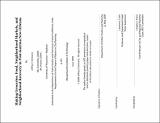Making groceries : food, neighborhood markets, and neighborhood recovery in post-Katrina New Orleans
Author(s)
Schwartz, Jeffrey E. (Jeffrey Evan)
DownloadFull printable version (10.15Mb)
Alternative title
Food, neighborhood markets, and neighborhood recovery in post-Katrina New Orlean
Other Contributors
Massachusetts Institute of Technology. Dept. of Urban Studies and Planning.
Advisor
Lawrence J. Vale.
Terms of use
Metadata
Show full item recordAbstract
In the aftermath of Hurricane Katrina, several neighborhoods in New Orleans created neighborhood markets. Given the fact that only one such market existed prior to the storm, this was surprising. This thesis hypothesizes that neighborhood markets are responding in part to the changing and uneven development of the food geography of New Orleans before the storm, and the lack of access to fresh food in many of the most deeply impacted communities after Katrina flooded the city. In order to understand why these neighborhood markets were established, this thesis places neighborhood markets in the larger context of the changing history of the food system in the US, as well as within the broader patterns of urban development and urban vulnerability, resilience, and risk. New Orleans' neighborhood markets are further contextualized by looking at the particular history of urban development in New Orleans and the unique food system that the city enjoyed -- particularly the robustness of the public market system in that city -- until much later into the twentieth century than any other US city. Interviews with market shoppers, vendors and market organizations for each of the eight extant neighborhood markets are used to explore claims about the roles of neighborhood markets in neighborhoods after the storm. Further interviews with city planners and recovery officials, as well as with non-profit and other community stakeholders, suggest three broad lessons from the experience of the neighborhood markets: one, that disaster has recapitulated and deepened the uneven geography of food access after the storm; two, that the continuing inability of markets to meet food access needs speaks to the fragile and tenuous nature of recovery; and three, that the city government has failed to effectively respond to the storm. (cont) The thesis concludes with general recommendations about the importance of the food system and neighborhood resilience for planners and policymakers,as well specific proposals for the New Orleans food system.
Description
Thesis (M.C.P.)--Massachusetts Institute of Technology, Dept. of Urban Studies and Planning, 2008. This electronic version was submitted by the student author. The certified thesis is available in the Institute Archives and Special Collections. Page 145 blank. Includes bibliographical references (p. 135-144).
Date issued
2008Department
Massachusetts Institute of Technology. Department of Urban Studies and PlanningPublisher
Massachusetts Institute of Technology
Keywords
Urban Studies and Planning.